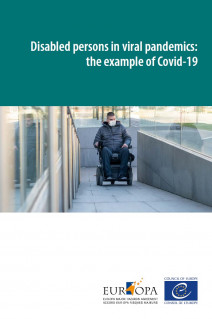In times of a pandemic, such as Covid-19, disabled people should be treated as individuals with specific needs
The World Health Organization (WHO) estimates that there are one billion people with disabilities inhabiting our planet today. They suffer from a wide spectrum of disabilities, ranging from motor and mobility issues to cognitive and sensory deprivation, and from short-term to permanent conditions. In times of a pandemic, such as Covid-19, disabled people should be treated as individuals with specific needs. The main aim of this publication is to identify ways to overcome the challenge to provide more equitable conditions.
This helps societies to fulfil their moral responsibility to be fair and inclusive in respect of those of its members who are disadvantaged and markedly more vulnerable during a pandemic period.
VIRAL PANDEMICS AND COVID-19
Introduction
People with disabilities and their needs in a pandemic
Residential care
Forms of discrimination
Disabled workers
The ethics of managing a pandemic from the point of view of people with disabilities
The need for data
Cognitive impairment: intellectual disabilities and mental health conditions
Young people with disabilities
Spinal cord injury
Osteoarthritis
Visual and hearing impairment
Other issues
Covid-19 as a source of disability
Solutions to problems
Summary and conclusions
GLOSSARY REFERENCES






